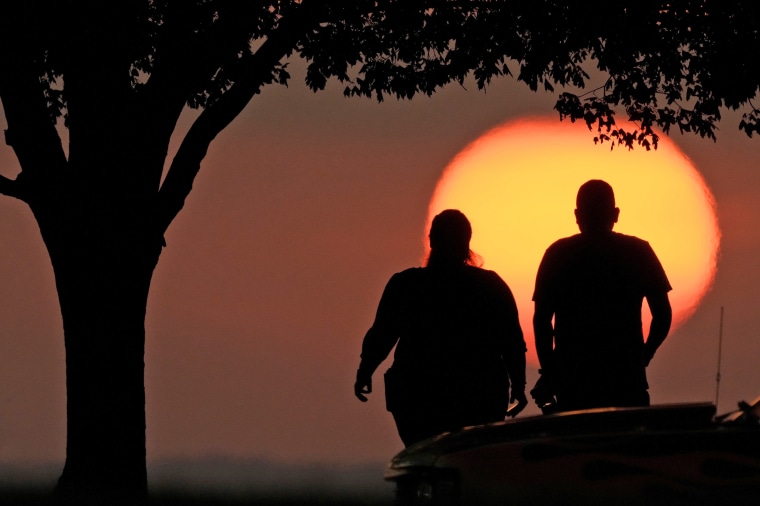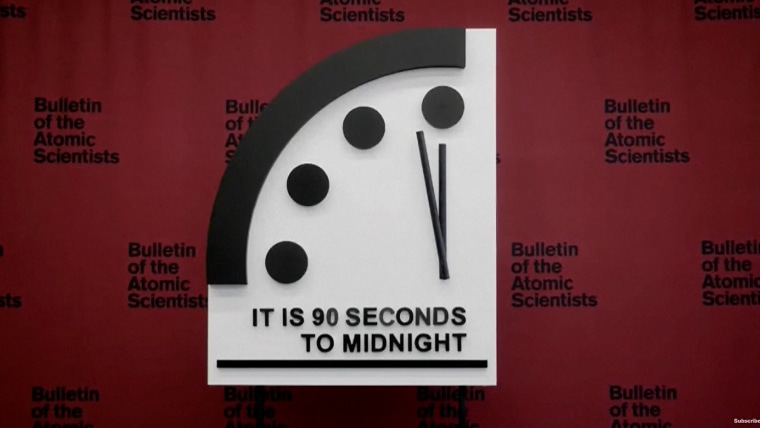More Americans, even Republicans, are accepting the reality that the Earth is getting warmer — but they’re still very much split on why and what to do about it.
Public opinions on global warming, including perceived risk and support for climate policies, have shifted considerably over more than a decade, with some of the most pronounced upward trends coming in deeply conservative states, according to new national surveys released by Yale University.
Researchers at the Yale Program on Climate Change Communication found that Americans are more worried about climate change now than they were in 2010, and support for renewable energy has also grown over time. But the findings showed that there are still discrepancies in how people talk about climate change and strong divisions over what should be done to address it.

The surveys come as the country gears up for a presidential election this year, providing some insight into what voters think should be key priorities for the candidates. The findings were also released on the heels of Earth’s hottest year in recorded history, one characterized by dangerous heat waves, intense storms and historic wildfires.
Though climate change is far from a bipartisan issue, the new surveys revealed that climate change beliefs and perceptions of risk have been consistently rising in most states, said Jennifer Marlon, a senior research scientist at the Yale Program on Climate Change Communication, who led the research.
That trend was true even in many Republican strongholds. In Texas and North Carolina, for instance, the percentage of adults who said they think global warming is happening rose to 72% in 2023 — the national average — from 60% in 2010. And in Indiana, that figure rose to 65% in 2023, from 55% in 2010.
“I was sort of encouraged to see that even in the red states, general awareness is going up,” Marlon said.
Awareness of the cause, however, was a bit more muddled.
While there is scientific consensus that human activities, such as burning fossil fuels, are the main driver of climate change, only 58% percent of Americans across the country echoed that conclusion.
“The science is completely conclusive that this is not natural, yet it’s clear that so many Americans are still confused about that,” Marlon said.
A majority of Americans in all but six states — Indiana, Kentucky, North Dakota, Oklahoma, West Virginia and Wyoming — think that global warming is mostly caused by humans, but many states lagged behind the national average.
Still, there were some key increases, Marlon said. In Tennessee, for example, the belief that humans are mainly to blame rose to 51% of adults in 2023, from 46% in 2010. And even in states without a majority of the public that understands there is scientific consensus, there is an overall upward trend. In Wyoming, less than 30% of the public understood that most scientists think global warming is happening in 2010, but that figure increased by 14 percentage points to 44% in 2023, according to the study.
Also trending upward was Americans’ support for climate policies such as tax rebates for solar panels and energy-efficient vehicles.
There was variability on pro-climate policies between states, but Marlon said she was surprised by some results, including an increase in support in Idaho, from 67% in 2010 to 71% in 2023, for regulating carbon dioxide as a pollutant.

A survey conducted last year by the Pew Research Center found that two-thirds of adults in the U.S. support prioritizing the development of renewable energy sources over fossil fuels, though Americans were generally reluctant to completely phase out the use of oil, coal and natural gas.
Though there can be deep divisions between Democrats and Republicans on climate change, research suggests that global warming is on people’s minds regardless of their party affiliation.
A recent study by researchers at the University of Colorado Boulder found that around two-thirds of voters rank climate change as an important issue. That figure matched the results of NBC News exit polls.
Of the 67% of voters who said they are concerned about climate change, 77% of them voted for President Joe Biden in 2020, the report found.
“Maybe climate change for some voters has become a litmus test issue,” said Matthew Burgess, an assistant professor of environmental studies at CU Boulder and one of the researchers of the study. “Climate change maybe isn’t the most important issue for some voters, but the evidence for it is so strong that if they see a candidate denying the issue, then maybe they think, ‘Hmm, I wonder if I should trust this candidate in general.’”
Burgess’ work estimated that around 2.4 million voters opted for Joe Biden over Donald Trump in 2020 based on climate change, possibly enough to have cost Trump his bid for re-election.
Trump has been vocal in his denial of climate science, repeatedly calling global warming a “hoax.” Nikki Haley, who is running a distant second against Trump in the Republican presidential primary, has acknowledged that climate change is real and caused by human activity but has also touted the role she played as U.N. ambassador in withdrawing the United States from the 2015 Paris climate agreement under the Trump administration.
As for what role these data points could play in the lead-up to November's presidential election, it's still anyone's guess, according to Marlon.
“Everybody’s crystal
ball is very cloudy,” she said. “A lot of people understand that there’s
really a lot at stake, but at this point, who knows?”
This article was originally published on nbcnews by Denise Chow and Chase Cain.